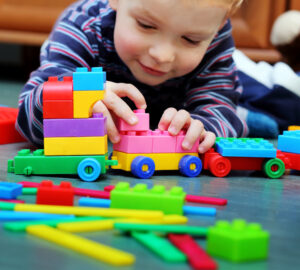EDUCATING PARENTS AND CHILDREN ON THE IMPORTANCE OF DENTAL HYGIENE
A Guide for Parents and Children
By Cally L. Adams, DDS, Pediatric Dentist
It is a fact that children’s teeth decay and develop cavities faster than the teeth of adults. To make sure that your child has the best oral hygiene possible, follow these dental hygiene tips. Dental hygiene is something that should be taken into consideration during many different activities. Good dental hygiene tips include:
- Brush Teeth – Make sure your child brushes regularly, with or without toothpaste. The act of brushing the teeth is what removes the majority of plaque and it serves to make brushing a lifelong “habit”. Your child’s hygiene regime should include brushing his/her teeth for 2 minutes, 2-3 times a day. We suggest setting a timer to ensure the full 2 minutes. Use a soft bristle tooth brush and place it at an angle against the gum line. Gently brush all surfaces of the tooth and finish by brushing the tongue.
- Infant Brushing – Parents and caregivers can begin to wipe infant’s gums & cheeks with a moist wash cloth even prior to tooth eruption. Infants’ teeth should begin to be brushed at the first sign of eruption. Toddler toothpaste which does NOT contain fluoride should be used until a child does NOT swallow the toothpaste.
- Don’t Use Too Much Toothpaste – One of the bad habits children develop is using too much toothpaste and swallowing a large amount of it. Most toothpaste contains fluoride, which is beneficial to tooth development. However, if your child ingests too much toothpaste, they could experience a tummy ache.
- Floss Regularly – Your child’s hygiene regime should include flossing at least once a day. Gently glide the floss between the teeth and curve the floss around the side of the tooth down to the gum line. Gently slide the floss downward to clean the side of the tooth. Repeat the process for EACH tooth. Flossing should begin once two teeth have erupted next to each other.
- Eat Healthy – Make sure you are watching your child’s diet. By avoiding excessive amounts of starches and sugars, you are helping to protect your child from cavities.
- Monitor Sugar Consumption – Limit those sugar-containing beverages, including milk and fruit juices, to mealtime and then brush your teeth afterwards. We only recommend 4 – 6 ounces of juice daily. Try to drink only water in-between meals.
- Don’t Allow Bottles In Your Child’s Bed – Allowing your child to fall asleep with a bottle containing anything other than water, can cause serious dental problems. When a child goes to sleep with a bottle of milk or juice in their mouth there is an over exposure of sugars to the oral cavity, which increases the bacteria activity on the child’s teeth.
- Regular Dental Visits Are VERY Important! – Your child should see a dentist by his/her first birthday. Dental visits should occur every six months to allow the dentist to monitor oral health and possibly help prevent problems from arising or becoming more extensive.
- Asthma Inhalers – Your child’s asthma inhaler is a medically necessary device but may contain steroids that can affect the good bacteria in your child’s mouth. After using asthma inhalers one should rinse with water or even better, rinse with water and brush the teeth.
- Bacteria Transmission – Cavity causing bacteria, Streptococci Mutans, can be transferred from adults to children. Reduce transmission by NOT sharing eating utensils and drinks or by cleaning pacifiers in your mouth.
- Restrict Pacifiers – Pacifiers should not be used after the first birthday.
- Reduce the Risk of Sports Injury – The most likely area of the body to be injured during contact sports is the mouth. All children should wear a properly fitted mouth guard while playing sports.
By instilling good dental hygiene in your children, you can help them preserve their teeth in the future and prevent costly, invasive dental procedures. Your child’s smile is “VITAL”, and with good dental hygiene, your child’s “SMILE” can be wonderful for a lifetime!




